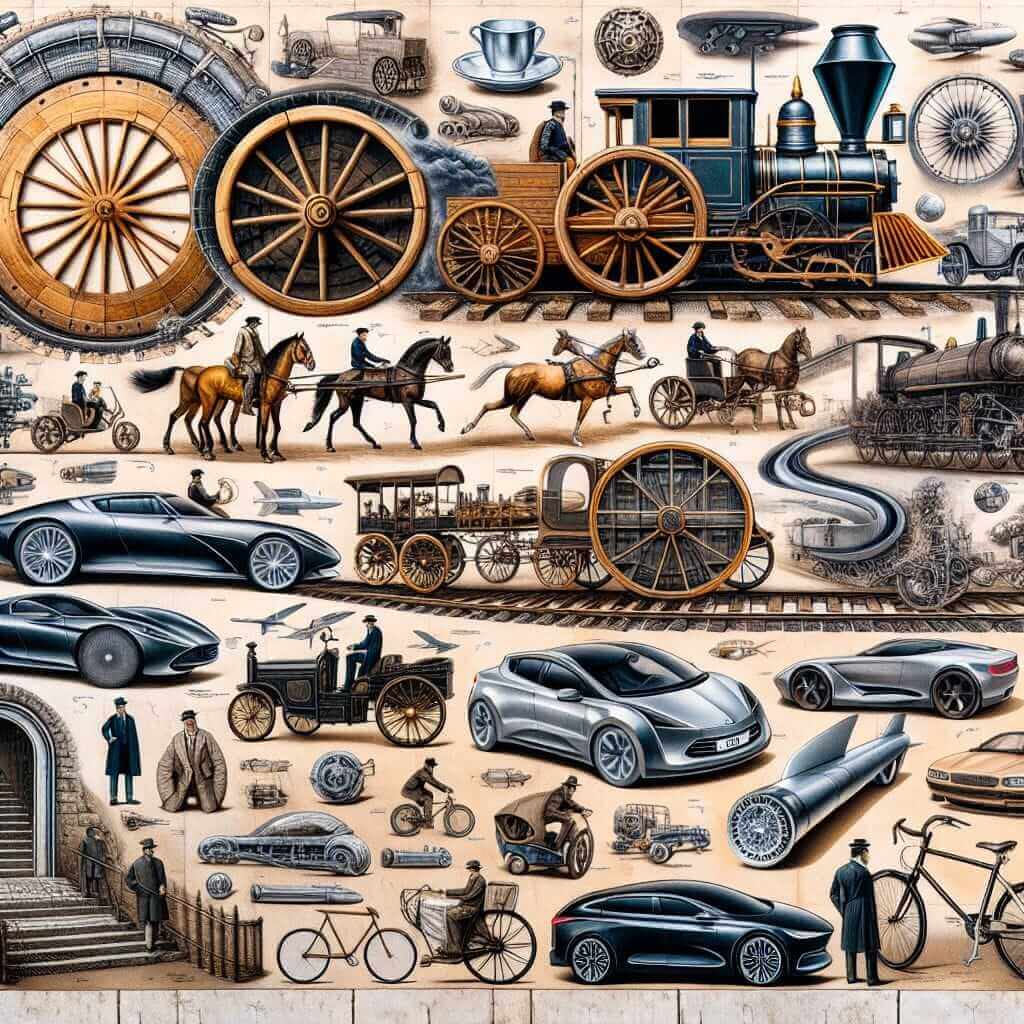The IELTS Speaking test often throws curveballs with seemingly simple yet multifaceted topics. “Changes in types of transport” is a prime example. This seemingly straightforward subject requires a deep understanding of societal trends, technological advancements, and their impact on transportation systems. As an IELTS instructor with over two decades of experience, I’m here to equip you with the knowledge and strategies to ace this topic.
Understanding the Scope: Why “Changes in Types of Transport” Matters in IELTS
This topic transcends mere descriptions of vehicles. It delves into the evolution of transportation, driven by:
- Technological Advancements: From the invention of the wheel to electric cars and hyperloop technology, innovation constantly reshapes how we move.
- Environmental Concerns: The pressing need for sustainability fuels the shift towards eco-friendly transport like electric vehicles and cycling infrastructure.
- Urbanization: Growing cities demand efficient and sustainable public transport systems like high-speed rail and ride-sharing programs.
Mastering this topic showcases your ability to analyze complex societal shifts and articulate their impact – skills highly valued in the IELTS Speaking test.
Navigating the IELTS Speaking Test: Strategies for Success
Part 1: Keeping it Conversational
Expect questions like:
- “How has transportation changed in your city/country?”
- “What’s your preferred mode of transport and why?”
Tips:
- Be specific: Instead of generic statements, mention concrete examples like “the introduction of metro lines” or “the rising popularity of ride-hailing apps.”
- Connect to your experiences: Share personal anecdotes about how transport changes have affected you.
- Use linking words: Words like “moreover,” “however,” and “as a result” add structure and fluency to your responses.
Part 2: Crafting Your Narrative
You might be asked to describe:
- “A significant change in transportation you’ve witnessed.”
- “The advantages and disadvantages of a particular mode of transport.”
Tips:
- Structure is key: Organize your thoughts with a clear introduction, supporting points, and conclusion.
- Vocabulary is power: Utilize terms like “infrastructure development,” “sustainable transportation,” or “mass transit systems.”
- Think critically: Don’t just describe; analyze the reasons behind the changes and their impact.

Part 3: Delving Deeper
Prepare for more abstract questions:
- “What are the future challenges for transportation?”
- “How can governments encourage sustainable transport?”
Tips:
- Express well-reasoned opinions: Back up your views with examples and logical explanations.
- Consider multiple perspectives: Acknowledge different viewpoints and discuss their validity.
- Use speculative language: Phrases like “It’s likely that…” or “One potential solution could be…” demonstrate your ability to discuss future possibilities.
Example from a Real IELTS Speaking Test:
Examiner: “How do you think transportation will change in the next 20 years?”
Candidate: “I believe the focus will be on sustainability and efficiency. We’re already seeing a rise in electric vehicles and autonomous driving technology. In 20 years, these could be commonplace, reducing our reliance on fossil fuels and potentially decreasing traffic congestion.”
This response demonstrates:
- Future-oriented thinking: The candidate speculates on upcoming trends.
- Vocabulary range: Terms like “autonomous driving” and “fossil fuels” showcase relevant language.
- Clear reasoning: The connection between technology and its impact is well-articulated.
Final Thoughts:
“Changes in types of transport” is a topic ripe with potential for the IELTS Speaking test. By understanding the broader implications, mastering key vocabulary, and practicing structured responses, you’ll be well-prepared to impress the examiner. Remember, confidence comes from preparation!